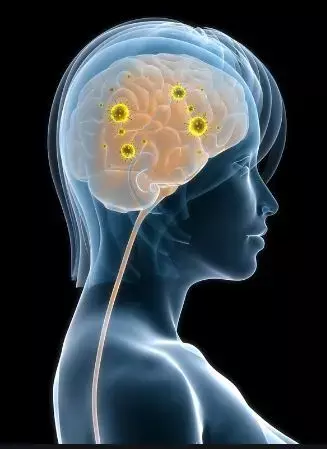- Home
- Medical news & Guidelines
- Anesthesiology
- Cardiology and CTVS
- Critical Care
- Dentistry
- Dermatology
- Diabetes and Endocrinology
- ENT
- Gastroenterology
- Medicine
- Nephrology
- Neurology
- Obstretics-Gynaecology
- Oncology
- Ophthalmology
- Orthopaedics
- Pediatrics-Neonatology
- Psychiatry
- Pulmonology
- Radiology
- Surgery
- Urology
- Laboratory Medicine
- Diet
- Nursing
- Paramedical
- Physiotherapy
- Health news
- Fact Check
- Bone Health Fact Check
- Brain Health Fact Check
- Cancer Related Fact Check
- Child Care Fact Check
- Dental and oral health fact check
- Diabetes and metabolic health fact check
- Diet and Nutrition Fact Check
- Eye and ENT Care Fact Check
- Fitness fact check
- Gut health fact check
- Heart health fact check
- Kidney health fact check
- Medical education fact check
- Men's health fact check
- Respiratory fact check
- Skin and hair care fact check
- Vaccine and Immunization fact check
- Women's health fact check
- AYUSH
- State News
- Andaman and Nicobar Islands
- Andhra Pradesh
- Arunachal Pradesh
- Assam
- Bihar
- Chandigarh
- Chattisgarh
- Dadra and Nagar Haveli
- Daman and Diu
- Delhi
- Goa
- Gujarat
- Haryana
- Himachal Pradesh
- Jammu & Kashmir
- Jharkhand
- Karnataka
- Kerala
- Ladakh
- Lakshadweep
- Madhya Pradesh
- Maharashtra
- Manipur
- Meghalaya
- Mizoram
- Nagaland
- Odisha
- Puducherry
- Punjab
- Rajasthan
- Sikkim
- Tamil Nadu
- Telangana
- Tripura
- Uttar Pradesh
- Uttrakhand
- West Bengal
- Medical Education
- Industry
Ceftriaxone as effective as benzylpenicillin in managing neurosyphilis: Lancet

Recent research results suggest that ceftriaxone is similarly effective to benzylpenicillin for the treatment of neurosyphilis, potentially decreasing the length of hospital stay. The interesting findings have been put forth in The Lancet Infectious Diseases.
Intravenous benzylpenicillin is the gold-standard treatment for neurosyphilis, but it requires prolonged hospitalisation. Ceftriaxone is a possible alternative treatment, the effectiveness of which remains unclear. A team of researchers under Thomas Bettuzzi, from Assistance Publique–Hôpitaux de Paris, France, aimed to assess the effectiveness of ceftriaxone compared with benzylpenicillin in the treatment of neurosyphilis.
For the study design,the team did a retrospective multicentre study including patients with neurosyphilis who were treated at one of eight tertiary care centres in France, from Jan 1, 1997, to Dec 31, 2017. They defined neurosyphilis as positive treponemal and non-treponemal tests and at least one of otic syphilis, ocular syphilis, either neurological symptom with a positive result on cerebrospinal fluid (CSF)-VDRL or CSF-PCR tests, or more than five leukocytes in a CSF cell count. Patients with neurosyphilis were identified from the medical information department database of each centre and assigned to one of two groups on the basis of the initial treatment received (ie, benzylpenicillin group or ceftriaxone group).
The primary outcome was the overall clinical response (ie, proportion of patients with a complete or partial response) 1 month after treatment initiation. The secondary endpoints were proportions of patients with a complete response at 1 month and serological response at 6 months, and length of hospital stay.
Findings revealed the following facts.
- Of 365 patients with a coded diagnosis of neurosyphilis in one of the eight care centres during 1997–2017, 208 were included in this study (42 in the ceftriaxone group and 166 in the benzylpenicillin group).
- The mean age of patients was 44·4 years (SD 13·4), and 193 (93%) were men.
- They observed 41 instances of overall clinical response (98%) in the ceftriaxone group versus 125 (76%) in the benzylpenicillin group (crude odds ratio [OR] 13·02 [95% CI 1·73–97·66], p=0·017).
- After propensity score weighting, overall clinical response rates remained different between the groups (OR 1·22 [95% CI 1·12–1·33], p<0·0001). 22 (52%) patients in the ceftriaxone group and 55 (33%) in the benzylpenicillin group had a complete response (crude OR 2·26 [95% CI 1·12–4·41], p=0·031), with no significant difference after propensity score weighting (OR 1·08 [95% CI 0·94–1·24], p=0·269).
- Serological response at 6 months did not differ between the groups (21 [88%] of 24 in the ceftriaxone group vs 76 [82%] of 93 in the benzylpenicillin group; crude OR 1·56 [95% CI 0·42–5·86], p=0·50), whereas hospital stay was shorter for patients in the ceftriaxone group than for those in the benzylpenicillin group (mean 13·8 days [95% CI 12·8–14·8] vs 8·9 days [5·7–12·0], p<0·0001). No major adverse effects were reported in either group.
For full article follow the link: https://doi.org/10.1016/S1473-3099(20)30857-4
Primary source: The Lancet Infectious Diseases
Dr Satabdi Saha (BDS, MDS) is a practicing pediatric dentist with a keen interest in new medical researches and updates. She has completed her BDS from North Bengal Dental College ,Darjeeling. Then she went on to secure an ALL INDIA NEET PG rank and completed her MDS from the first dental college in the country – Dr R. Ahmed Dental College and Hospital. She is currently attached to The Marwari Relief Society Hospital as a consultant along with private practice of 2 years. She has published scientific papers in national and international journals. Her strong passion of sharing knowledge with the medical fraternity has motivated her to be a part of Medical Dialogues.
Dr Kamal Kant Kohli-MBBS, DTCD- a chest specialist with more than 30 years of practice and a flair for writing clinical articles, Dr Kamal Kant Kohli joined Medical Dialogues as a Chief Editor of Medical News. Besides writing articles, as an editor, he proofreads and verifies all the medical content published on Medical Dialogues including those coming from journals, studies,medical conferences,guidelines etc. Email: drkohli@medicaldialogues.in. Contact no. 011-43720751


